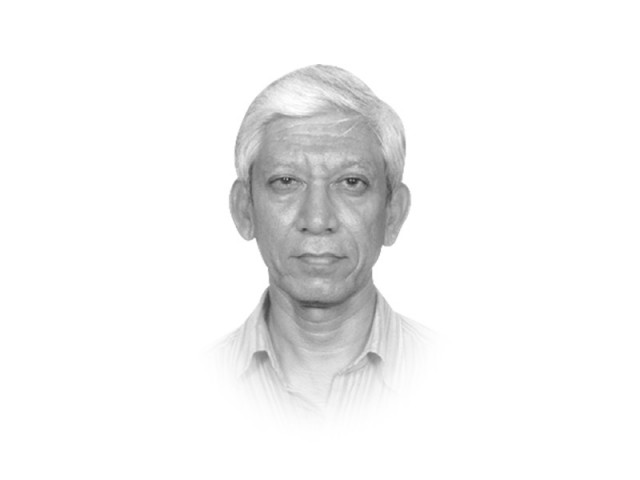‘Padma turns red’
Large part of the population was sitting on the ideological fence when powerful elements decided for the ethnic divide

There was a clear and harsh message from the powerful establishment, to the effect that it was not willing to hand over the usurped power to the people’s elected representatives, and the intended reaction, too, was as harsh and clear. Suddenly, the entire Bengali population seemed to have turned into enemies of Pakistan and were subsequently treated as such by the forces that began to be seen as an occupation army. Shahid was with his close friend Imdad when they received a message that Imdad’s father was visiting from Rajshahi. In view of the army’s attacks on the Police Lines, Dhaka University and other places, they decided to leave Dhaka, just like tens of thousands of other people, and live in Rajshahi till things got better. A young student from Lahore, taking refuge with a middle-class Bengali family in March 1971 seems something unbelievable today, but when you read Shahid’s account of how they helped each other in difficult times, it looks natural. The Bengali society was forcefully and murderously divided as a result of the establishment’s fatal decisions, but on the human level things continued as before at some places. Such places were few and far between but show another side of the picture.
Caught between the attacking Pakistan Army and defending ‘Azad Fauj’ (or the Liberation Army, the name Shahid has referred the Mukti Bahini with throughout his dairy) the family, like other such families, were thoroughly confused. You could say that a large part of the population was still sitting on the ideological fence when the powerful elements had decided that the division would be ethnic and not ideological. An event narrated by him about a stranded cat in an abandoned house for several days seems to symbolise the condition of such people. As far as the attacking Pakistani Army was concerned, it treated all Bengalis suspect Muslims and suspect patriots; their mindset had no space for the fact that Hindus were an integral part of the East Bengal’s society unlike Punjab which had undergone a complete ethnic cleansing and the entire social milieu had become dangerously homogenous in religious terms. While raiding at people’s homes, the soldiers would ask the residents to recite the kalima, and would still consider them less Muslim than themselves. The liberation army trying to resist the attacking army’s onslaught would wrest control of one town after another and, in the absence of a working state machinery, impose their own writ on the population caught in the crossfire. They, too, suspected the people of having links with the attacking or occupying forces based on ideology, interest or the instinct of survival. As far as the Bihari population living anywhere in East Bengal was concerned, it had opted to collaborate with groups that were resisting the popular will; when the election results were contemptuously rejected by the establishment and the political parties siding with it — Jamaat-e Islami, Nizam-e Islam Party, Muslim League and so on — the Bihari neighbourhoods throughout East Bengal became islands of collaboration and a target of the liberation army’s attacks.
However, the civil war was fought between the hard fighters on the two sides of the divide. Shahid mentions how he witnessed a strange scene during a morning walk with his friends on the bank of the dried up Padma river. He and his friend saw a long line of prisoners, some of them with tied hands and feet, crossing the riverbed to go towards the border with India, followed by a few soldiers of the East Pakistan Rifles (EPR). There was a jailbreak and all the prisoners had run away. Many of them joined the liberation army. Once the Rajshahi town was taken over by the EPR, a search party went out looking for Biharis and other collaborators. This was when the hosts saved Shahid’s life by declaring him a part of their own family.
Published in The Express Tribune, January 14th, 2012.














COMMENTS
Comments are moderated and generally will be posted if they are on-topic and not abusive.
For more information, please see our Comments FAQ